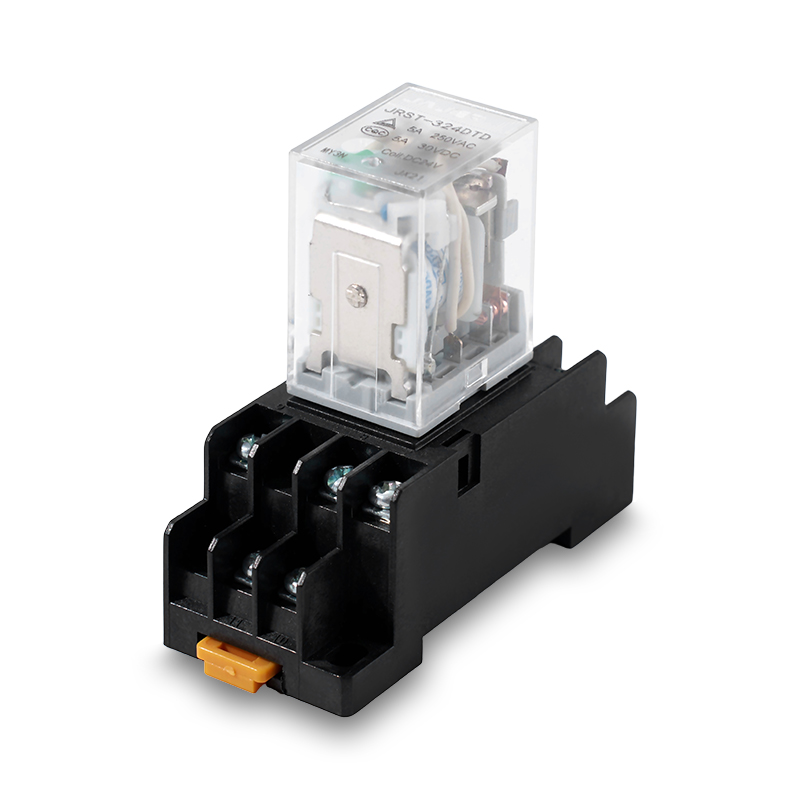Energy metering devices have become essential in monitoring and managing electricity consumption in residential, commercial, and industrial settings. Among the components that ensure these devices operate safely and reliably, relays play a crucial role. A 12V DC relay switch is commonly used in energy meters to control the flow of current, isolate circuits, and trigger protective measures when necessary. This article explores how relays function within energy metering devices and why their inclusion is important for consistent operation.

In energy metering devices, relays serve as electrically operated switches. When the meter detects a certain condition, such as a voltage spike or an overload, the relay can open or close the circuit to respond appropriately. For instance, a 12V electrical relay is often employed to control auxiliary components or to engage alarms. These relays provide isolation between low-voltage control circuits and high-voltage measurement lines, which reduces the risk of damage to sensitive electronics and improves overall safety.
A 12V DC relay switch is frequently used to manage the connection of loads in energy metering devices. By applying a small control voltage, the relay can switch larger currents, allowing the energy meter to handle multiple tasks without putting strain on its internal components. This feature is particularly important in smart meters that interact with automated load management systems. Through relay control, the device can connect or disconnect circuits depending on real-time power consumption, ensuring efficient energy distribution while preventing overheating or overload situations.
One of the main advantages of using a 12V electrical relay in energy meters is the isolation it provides between circuits. Electrical isolation is critical in devices that handle both high and low voltage levels. By separating the control side from the power side, relays reduce the risk of short circuits and protect sensitive measurement electronics. Additionally, relays act as protective devices by disconnecting the load during fault conditions, which helps prevent damage to both the energy meter and connected equipment.
Relays also support the integration of energy meters into automated metering infrastructure (AMI). With a relay, energy meters can respond to remote commands for load control or perform switching tasks based on data collected from the grid. For example, utility providers can send signals to the meter to disconnect or reconnect circuits during maintenance periods or peak load times. This automated functionality relies on the rapid and reliable switching ability of 12V DC relays, which allows energy meters to interact with the wider electrical network effectively.
In addition to switching and isolation, relays contribute to the reliability and longevity of energy metering devices. Repeated exposure to high currents or voltage fluctuations can damage delicate electronic components. A 12V electrical relay helps mitigate these effects by handling the switching load, reducing stress on internal circuits. As a result, energy meters can operate consistently over long periods without frequent maintenance, which is particularly important in industrial and utility applications where downtime can be costly.
When selecting relays for energy metering devices, several factors should be considered. Voltage rating, current capacity, and switching speed are key parameters. A 12V DC relay switch with appropriate specifications ensures that the device can safely manage the expected load while maintaining fast response times for protective actions. Other considerations include environmental conditions, such as temperature and humidity, which can affect relay performance. Choosing a relay designed to withstand these conditions contributes to stable and dependable energy meter operation.
Relays are a fundamental component in energy metering devices, providing control, isolation, and protection. Whether using a 12V DC relay switch or a 12V electrical relay, these devices enable energy meters to operate efficiently and respond to varying electrical conditions. From load management to integration with automated systems, relays enhance the functionality and safety of energy meters. Understanding their role helps in designing and maintaining reliable metering solutions that can serve a wide range of applications while ensuring long-term performance.
Quick Contact
Yueshang Innovation Park, Wengyang Street, Yueqing City, Zhejiang, China
Pages
Stay In Touch
If you have any questions or need help, feel free to contact with our team.